That said, LWR had two intakes this week, a screech owl and a barred owl, both found in the road.
The screech, a tiny red-phase male, came in midweek; he was found in the turning lane of an exit to the interstate. Upon examination, it was obvious he had a ruptured eye and at least one broken wing; the other also felt as if it might be broken. His stress poop, which should have been black, oily and smelly, was instead rust-colored. None of this boded well for the little fellow but he was fairly alert and even tried to preen his wings a bit, so I was hopeful I’d overstated the extent of his injuries.
This morning, a barred owl, also male based on his size, came in after being found in the middle of the road several counties away. His right hip feels broken, and his finders attempted to splint his leg to stabilize it somewhat. He has no neural response in his foot, though, and he also had fresh blood in his poop, in addition to the inside of his mouth being totally white—this indicates internal bleeding. None of this bodes well for the poor bird, but if he makes it through the night he’ll head to Smalley’s for x-rays, as well.
What can you do? Aside from either not driving at all or driving so slowly that impact with a raptor would cause minimal damage to the bird—neither of which is practical or practicable—be alert when you’re driving. It’s not called defensive driving for nothing. If you’re alert and watching the sides of the roads you may be able to slow, stop or swerve to avoid hitting a hunting raptor. And for the love of all that’s holy, DON’T toss your trash, not even fruit or other foodstuffs, out on the side of the road to attract raptor prey to dangerous hunting areas. Keep a bag or box in your vehicle for your trash; it takes all of maybe 60 seconds to empty it at home or at a gas station. Those 60 seconds could mean the difference between life and death for a raptor.
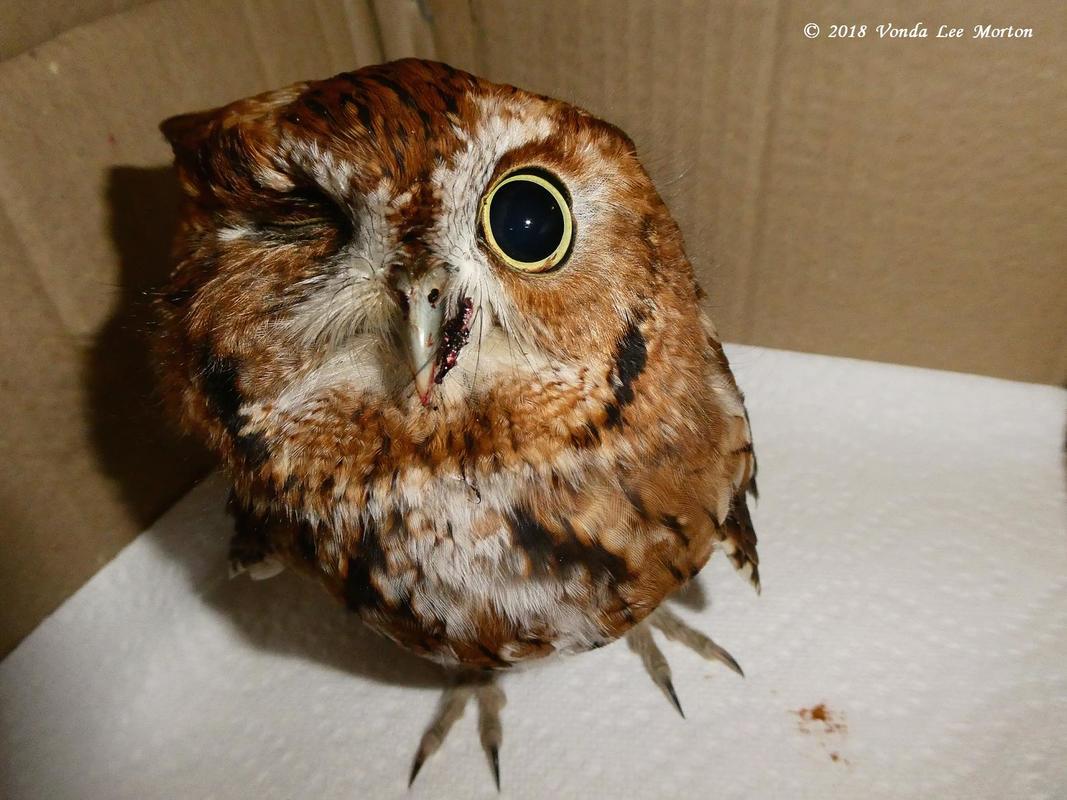
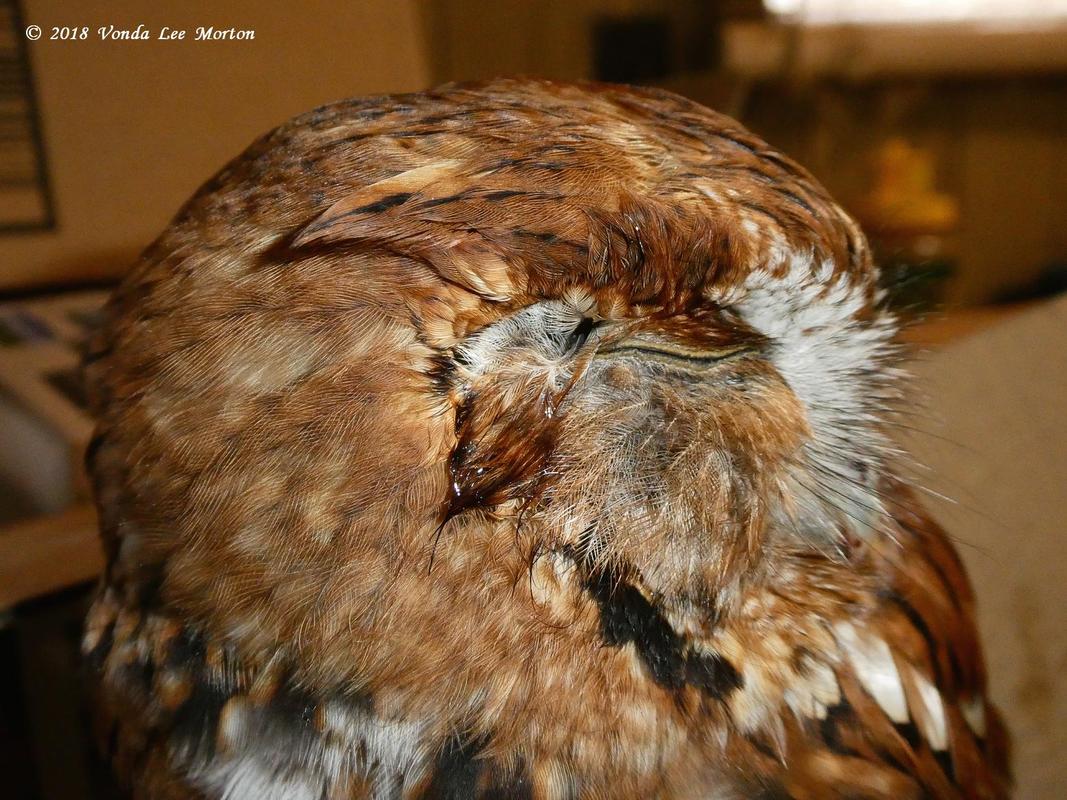
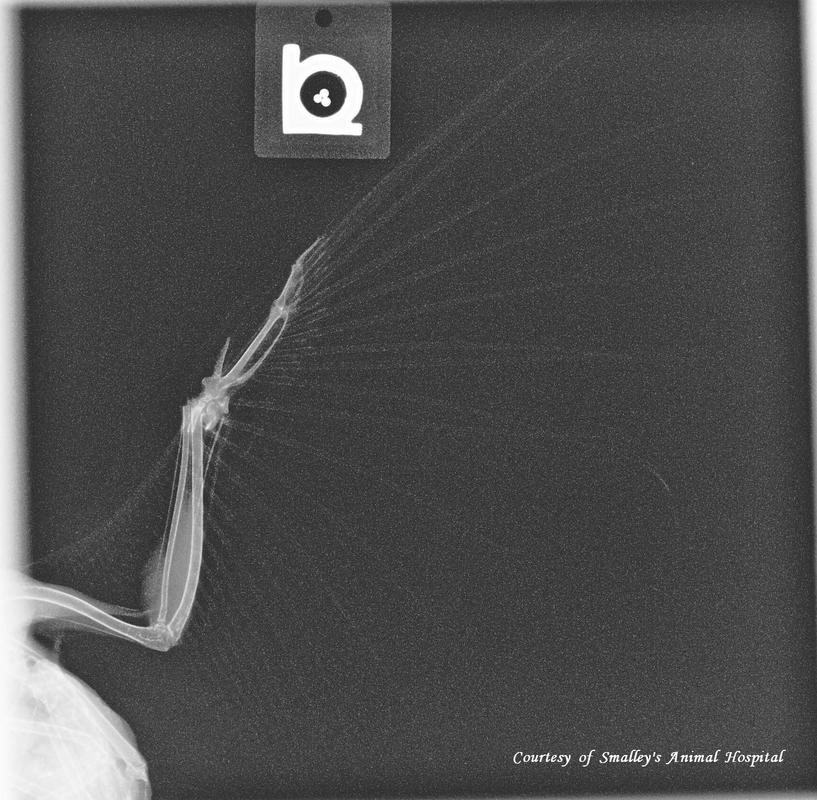
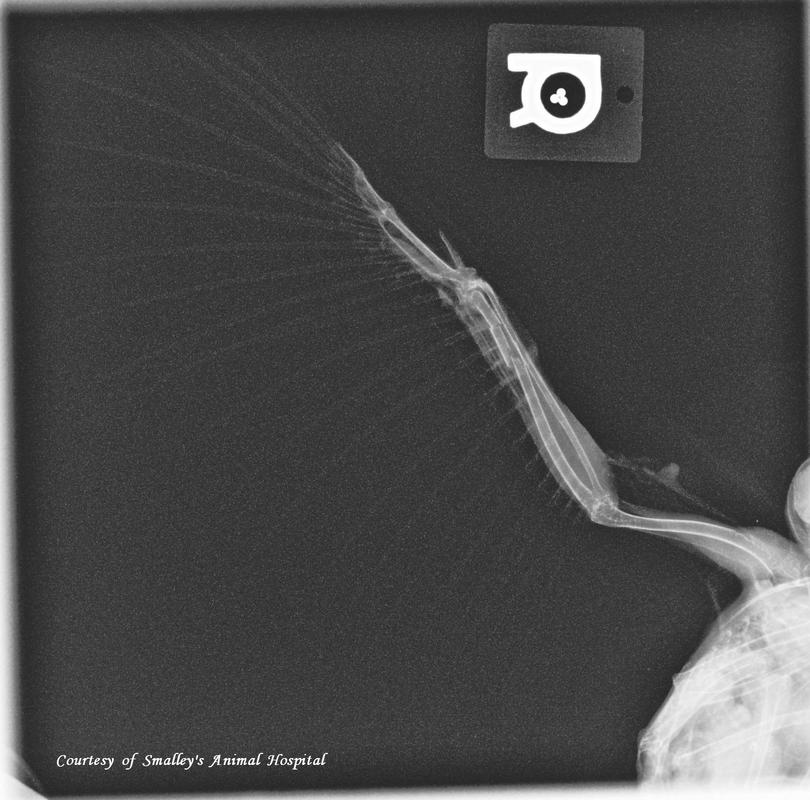
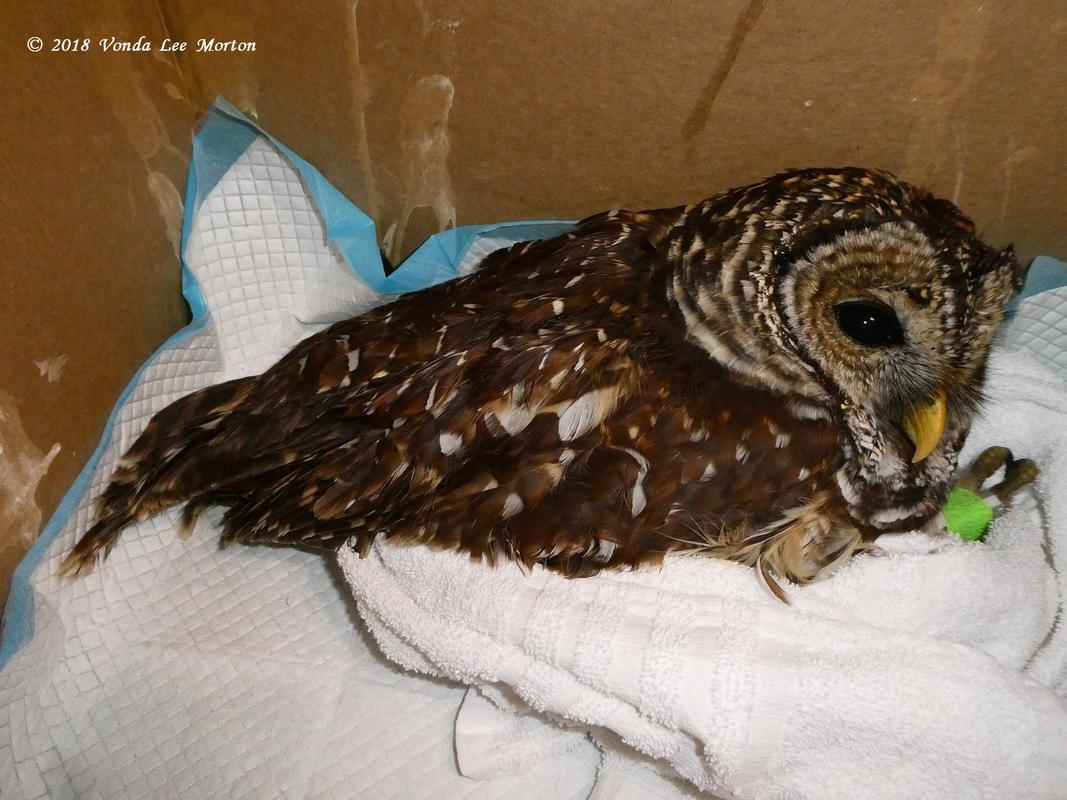
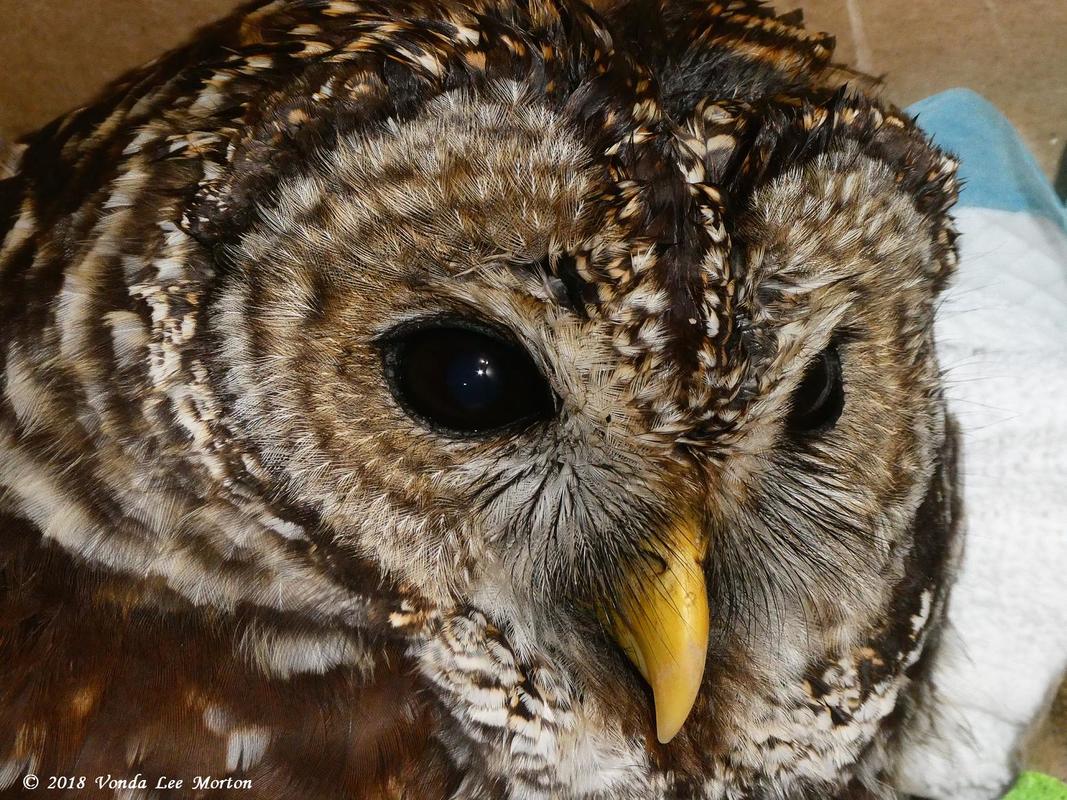
 RSS Feed
RSS Feed
